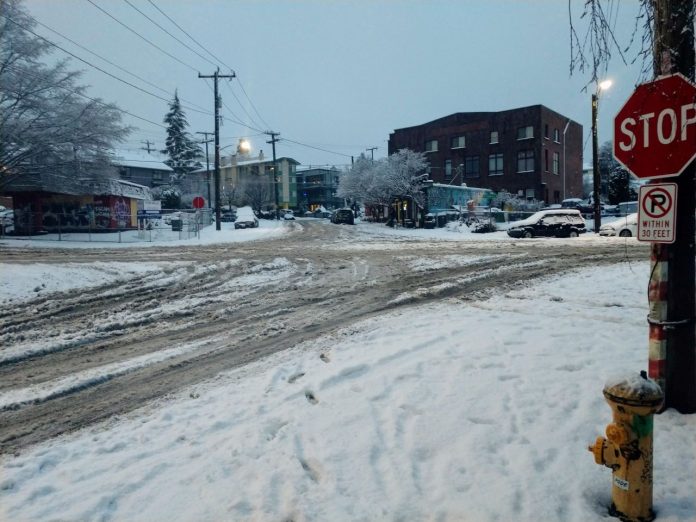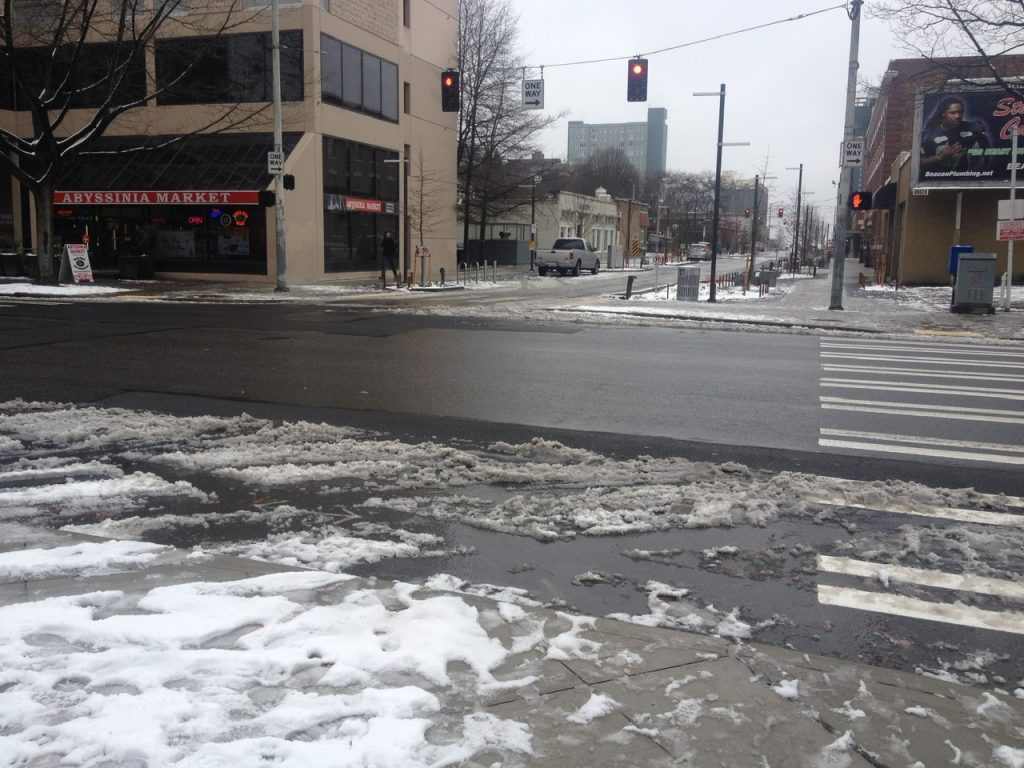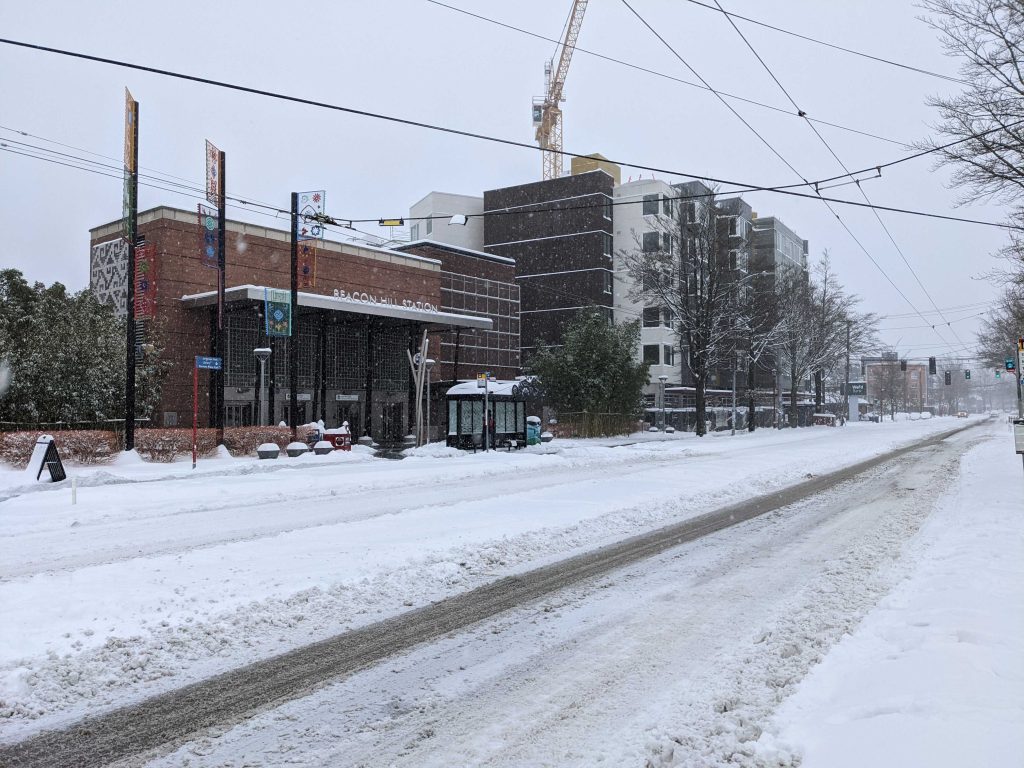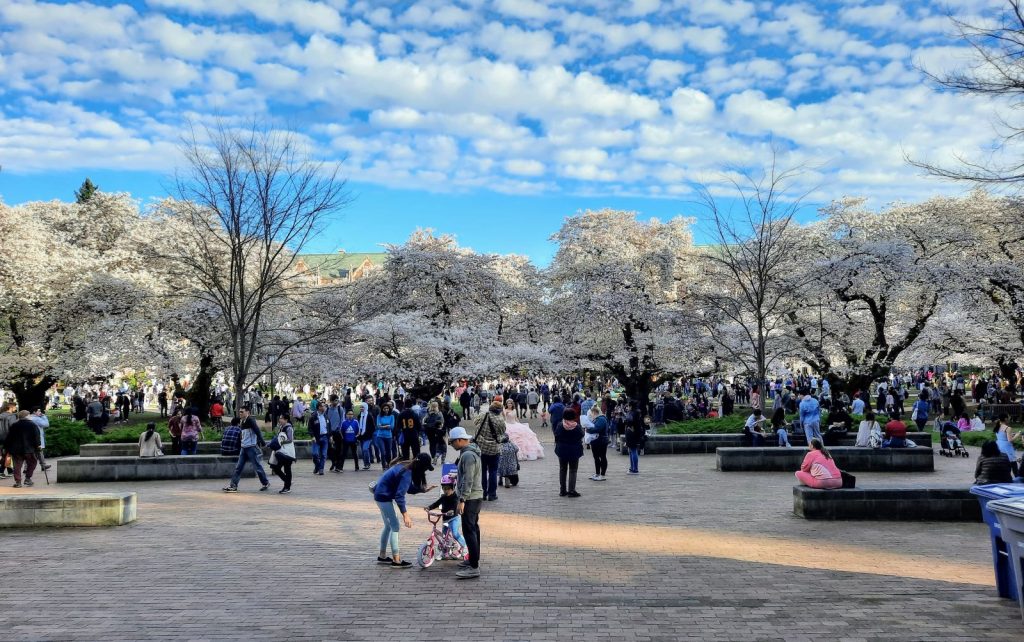
Recent organization changes and election losses mean an introspective winter for local activism.
If there was any doubt that the progressive moment in Seattle has ended, the now certified November election results have confirmed it. Centrist and conservative candidates have taken the city council. The only progressive-left voice that did succeed eked out a victory by the smallest amounts. As District 4 candidate Ron Davis put it in his concession email, over the last two elections, ten of the eleven seats in Seattle government shifted to the right by an average of 11 percentage points.
It’s a moment of reflection for progressive and leftist activists in the city and the region. Not only was this month’s loss a bruising, but there is a feeling that a torch is passing, a lull in progressive work and ideas. Organizations that once were large and active have had members leave, gone dormant, or retooled their staffs. Many groups have not gone back to regular meetings since the pandemic forced Zoom calls, and the work has suffered.
Two big exits from the council exacerbated this feeling. Teresa Mosqueda is hanging up the work of building human values into the city’s budget for a better paying and lower spotlight job at the County Council. Kshama Sawant, the longest tenured council member, decided against running again. Sawant’s perpetual outpost at the far left end of the political spectrum gave a lot of cover for the City Council to make many impactful programs. Progressives gripe loudly about Sawant’s tendency to monologue or vote against their proposals, but her role as a lightning rod did as much for progress as any yes vote. And these exits come after Mike O’Brien got shouted out of office in 2020 and Lorena González lost her bid for mayor in an equally disastrous 2021 election.
The sense of listlessness goes deeper. Some may have to do with the collapse of Twitter. The social media platform came to amazing maturity for exchanging ideas during the first district elections in 2019, maintaining contact with organizations through the pandemic, and mobilizing direct action during the Black Lives Matter protests. Now the newly rechristened X is Sunday morning gutter residue from outside the bar mixed with straight up hate speech posing as thoughtful debate between the two most irritating guys from 10th grade. At best, Twitter has become the cork board next to the restrooms at the grocery store. It could be useful to put a poster there, but seems drowned out by the scams and noxious fumes.
All together, the air has left the progressive balloon.
But let’s be really honest. The last ten years of Progressive Seattle have produced some transformative wins. The City Council passed a head tax that was quickly recoiled in a spectacular loss. But the next Council passed a bigger package that’s a massive success, raising enough revenue to cover its own promises plus plug the budget deficit. The Council passed campaign vouchers, a sweetened beverage tax, and required hazard pay cover essential workers during the pandemic. And Seattle rewrote swaths of the zoning ordinance including rules covering industrial lands, home businesses, and single family zoning. That’s even before the city passed a social housing initiative and a billion-dollar housing levy.
The Progressives are not winning. The Progressives won. It’s been so successful that it’s produced its own ecosystem of white-wing grifters who built their reputations on “surviving” Seattle’s leftist politics. What better evidence of success than having mid-talent shills formulate a whole career complaining about you?
Bruce Harrell’s record as mayor is a comparative failure. All the measures that the broadcast news goes to — mass retail theft, downtown Third Avenue issues, and budget holes — are all broadening under his watch. The grand recovery summer in Seattle owes more to Taylor Swift than any AI hallucination produced by Harrell’s office. His flagship program to address homelessness, announced with fanfare as a partnership with Big Business, has utterly collapsed into very One Seattle finger pointing. He didn’t even need a win to make a showy press conference about the plan, and poof, it’s gone.
That’s the game, and it’s instructive for anyone trying to understand modern local politics. Success for progressive initiatives has been extensive, but it has felt as elusive as a retweet because so much activism happened online. The progressives have altered the fundamental voting, budgeting, and housing foundations of the city. Meanwhile, the Mayor and Chief of Police can always get on broadcast television to announce alleyway bocce courts, and that becomes the news and the narrative, reshown at 4pm, 5pm, 7:30pm, and 11pm.
It also raises the question of which chunk of progressive activism has taken the beating. Perhaps, Seattle’s experiencing an attrition of performative White folks creating 501(c)s and Twitter followings rather than results. While the Fox News grifters take potshots at the “homelessness industrial complex” because their stifled wit can’t come up with anything new, there’s some useful research suggesting that there are simply too many nonprofits. Crowded fields of small activist startups can drain resources from peers, even if there’s not a competition for profit.
There are still a ton of people doing the actual work of coalition building and legislative sausage making. Spectacularly smart and competent electeds throughout city and regional government are pushing very progressive ideas from increased housing to equitable taxation to highway removal. Potentially, we could add good transit to that list, but Harrell is doing everything to add that to his tally of failures.
In the end, it could just be that Seattle progressives have reached a cyclical end. One group is tired, another’s ready to move to other work, and a lot have hit a wall of exhaustion. The expertise that drove activism through tweets or startup culture isn’t as useful anymore. People are allowed to develop other interests. That’s fine. It’s time.
Everyone and everything needs rest. The most bountiful fields get a fallow season after a long and productive summer. This decade-long summer of progressive advancements in Seattle has been wildly productive. Winter is here, and we can look forward to a blooming of new ideas and new activists in the spring to come.
Ray Dubicki is a stay-at-home dad and parent-on-call for taking care of general school and neighborhood tasks around Ballard. This lets him see how urbanism works (or doesn’t) during the hours most people are locked in their office. He is an attorney and urbanist by training, with soup-to-nuts planning experience from code enforcement to university development to writing zoning ordinances. He enjoys using PowerPoint, but only because it’s no longer a weekly obligation.





